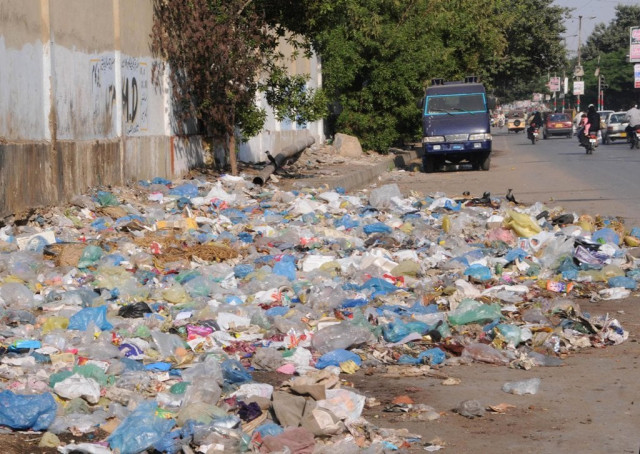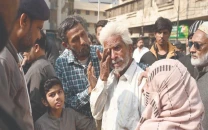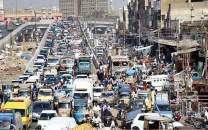'Solid waste is a treasure, don't waste it'
Huge potential for power generation from garbage, says SSWMB executive director

As much as 2,000 tons of organic waste is produced in Karachi every day from which 100 megawatts (MW) of electricity can be potentially produced, the SSWMB executive director said. PHOTO: FILE
Sindh Solid Waste Management Board (SSWMB) Executive Director Asghar Mehmood said this while discussing the potential uses of solid waste at a workshop organised to generate recommendations for a renewable energy plan for the city. The workshop was organised by the World Wide Fund for Nature (WWF) - Pakistan in collaboration with K-Electric (K-E) and the Karachi Metropolitan Corporation (KMC).
"India started ventures into power generation [from solid waste] long ago," he said, adding that due to management issues at the front end collection of garbage, such ventures failed to produce the desired results.
Mehmood informed the workshop's participants that combustion and incineration were two methods through which power could be generated from solid waste. "Solid waste is a treasure. Don't waste it," he said.
Judicial commission seeks reports on garbage lifting in Karachi
The SSWMB executive director remarked that Pakistan faced issues similar to India in the front end collection of solid waste. People who pick up garbage from outside houses collect all the valuables, he said, adding that most of the garbage is then useless trash that could not be utilised to generate power.
Inorganic and organic waste is supposed to be separated at garbage transfer stations (GTS) in different parts of the city, Mehmood said, adding that incinerators should be installed at GTS where organic waste is burnt to produce power.
As much as 2,000 tons of organic waste is produced in Karachi every day from which 100 megawatts (MW) of electricity can be potentially produced, the SSWMB executive director said. He said that there was a plan to convert landfill sites in the city into scientific landfill sites so that power could be generated from garbage.
K-E Marketing and Communications Deputy Director Zehra Mehdi said developing a renewable energy policy was an important step towards make Karachi a sustainable city. She shared that by 2020, K-E would add 100MW of renewable energy to its existing energy generation capacity. "The company is working on various renewable energy initiatives that focus on solar, wind and waste based energy sources," she said.
Playing for the planet or for Thar?
KMC representative Masood Alam said the city was expanding at a fast pace due to population growth and urbanisation. Karachi is facing huge challenges in terms of energy, water and waste management, he said. He urged all stakeholders to make collective efforts to address issues being faced by the city and make Karachi a sustainable city.
"It is good that Karachi in being included in international platforms such as One Planet City Challenge and C40," he said, adding that reliance on renewable energy was possible only with dramatic improvements in energy efficiency and storage.
Solid waste management costs exchequer Rs9b
It is the need of the hour to switch from conventional energy to renewable energy sources as climate resilient cities in the world have been adopting clean energy, said Dr Babar Khan, WWF-Pakistan's Sindh and Balochistan head.
"In order to tackle climate change, Karachi should increase its share of renewable energy, promote sustainable public transportation, avoid deforestation and ensure efficient waste management," he said.



















COMMENTS
Comments are moderated and generally will be posted if they are on-topic and not abusive.
For more information, please see our Comments FAQ